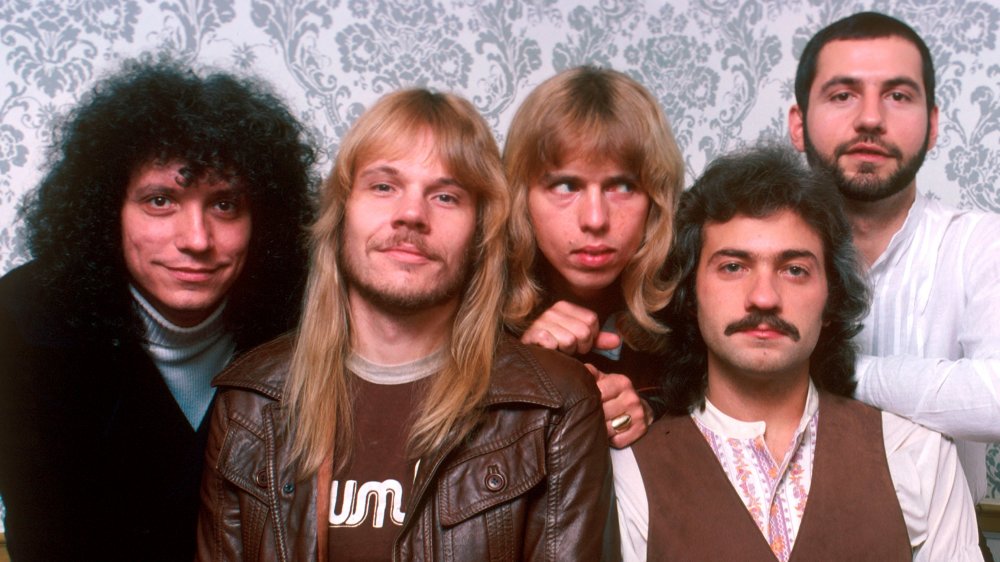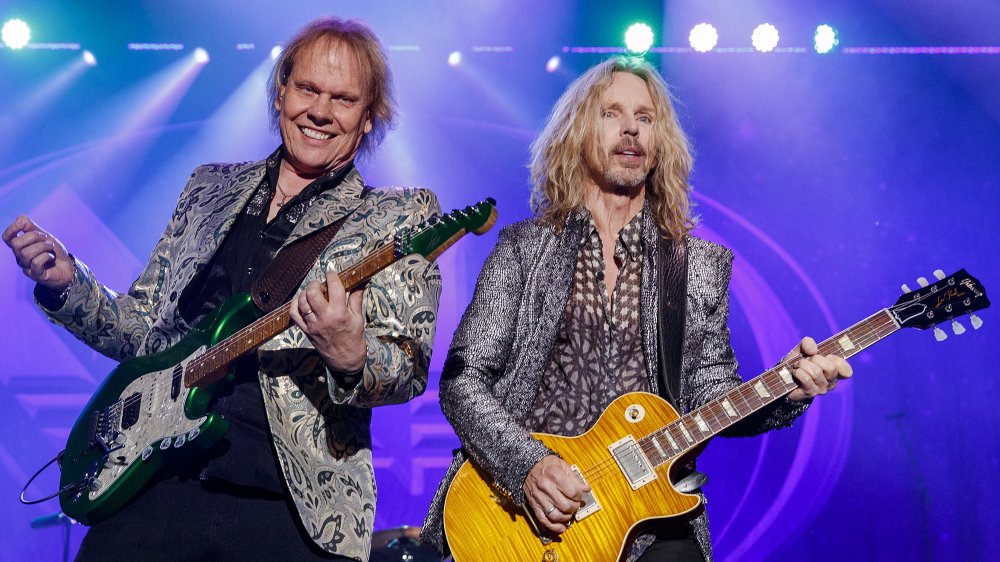The Real Reason Styx Never Performed Mr. Roboto Live Until 2018
Styx is the river between the lands of the living and the dead in Greek mythology. Another, extremely different Styx makes music, and is quite good at it. You may have heard some of the famous 1970s-1980s rock group's hits, such as "Babe," "The Best of Times," "Come Sail Away," "Too Much Time on My Hands," and "Don't Let It End." You have definitely heard their arguably best-known song, "Mr. Roboto." The curious synth-pop tune with its Japanese "Domo Arigato, Mr. Roboto" refrain was a highlight of the band's Kilroy Was Here album in 1983, and has long been a signature of the band.
With that in mind, you may be surprised to find out that Styx has historically been very reluctant to play the song live, to the point of avoiding it altogether. However, a couple of years ago, they suddenly had a change of heart, and finally started including the smash hit in their setlists. But why did they do it? And why did they refuse to play the song until then? Here's the real reason Styx never performed Mr. Roboto live until 2018.
The force of a promoter
As Dave Lifton of Ultimate Classic Rock tells us, Styx had a very good reason to bring "Mr. Roboto" to live audiences in 2018: The concert promoters were making them. At least, according to some: Keyboardist Lawrence Gowan says that they had already been discussing the matter for some five years before, but original singer Dennis DeYoung holds on to the version that the powers that be forced the group's hand. As Blabbermouth notes, "Mr. Roboto" was, of course, written by DeYoung, and he lists it as one of the number of hits that he wrote and that the band has kept out of the set list since he fell out with them (the others are "Don't Let It End," "Show Me the Way," and "Babe.").
But why has Styx been so reluctant to play "Mr. Roboto" in particular? In an interview with AZ Central, guitarist James "J.Y." Young reveals the answer: He always disliked the "soft, sappy side" of Styx, which just happened to be the specialty of DeYoung, who he views as something of a competitor. He particularly soured on "Mr. Roboto," which he claims DeYoung essentially forced them to record, and which he says severely hurt their young male fanbase and concert ticket sales. Perhaps not coincidentally, live performances of "Mr. Roboto" went on ice the second the band first broke up in 1984 — and took well over three decades to make a comeback.

